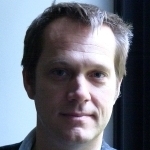 (Host) Writer and educator Mike Martin has been thinking about the
(Host) Writer and educator Mike Martin has been thinking about the
future of schools and is looking forward to the Rowland Foundation’s
School Transformation Conference at UVM this week, where educators will
consider the importance of innovation.
(Martin) Estonia is one
of the European Union’s smallest countries, but it’s where Skype comes
from. It’s considered one of the most wired, progressive, and democratic
countries in the world, and soon its national curriculum will include
web and mobile application development – starting in first grade. This
is in part a reaction to recent cyber-attacks from Russia , but the move
is also an investment in the country’s vibrant tech economy, and in its
future. Here in the U.S. we haven’t decided to make all first-graders
into programmers yet, but major changes are taking place in our schools:
they are gradually moving away from the industrial model that has been
dominant for well over a century now.
Tony Wagner, a writer and
speaker from Harvard’s Technology & Entrepreneurship Center, has
been at the forefront of this new thinking. This week he’ll be at UVM to
speak to more than 500 educators for the Rowland Foundation’s Second
Annual Conference on School Transformation. The Rowland Foundation is a
new Vermont-based non-profit that works to improve public schools by
investing directly in teachers with innovative ideas.
Mr. Wagner
argues that innovation is exactly what schools need now. His new book
Creating Innovators calls for more collaboration, interdisciplinary
problem-solving, and intrinsic motivation for our students. When it
comes to the Internet, we know that our kids are content-creators and
not just content-consumers, so our schools need to connect learning that
takes place both inside and outside the classroom. And with so many
students publishing their personal work directly online, schools
definitely need to engage them in a new way.
Mr. Wagner’s new
book argues for more play, passion, and purpose in our schools. Some
might argue that school isn’t supposed to be fun, but we do know that we
often learn best when we are free to experiment, and when we’re less
afraid of making mistakes. (By the way, this trial-and-error approach
perfectly describes how our children master level after level of their
favorite video games.) Passion is important too. Consider that we only
ever get really good at things that we enjoy, that we’re interested in,
and that we care about. And certainly purpose has become more important
for a generation that texted donations to Haiti relief efforts and then
rose up en masse against Joseph Kony. Through social media and the
Internet our students are already used to engaging in public issues,
from green activism to social justice, and they want to know their
efforts have an effect in the real world.
"More testing, alone,
will not improve teaching," Mr. Wagner has written – suggesting that for
our schools to turn out graduates who are creative, collaborative, and
connected, we must foster innovation over standardization.
Vermont
educators are already hard at work to create the change our schools
will need in the coming years for this transformation. And that’s good
news, because now that the 21st Century is 12 years old, you might say
that the future, in fact, is already here.